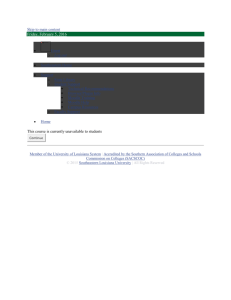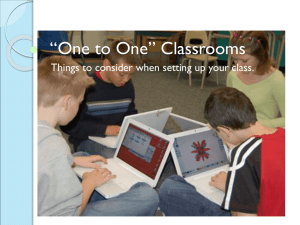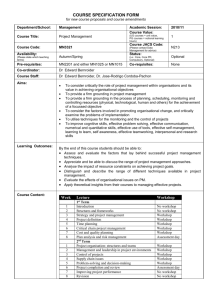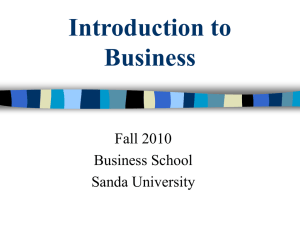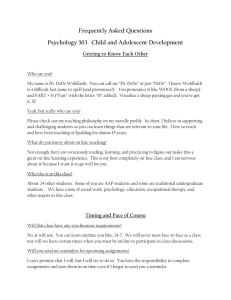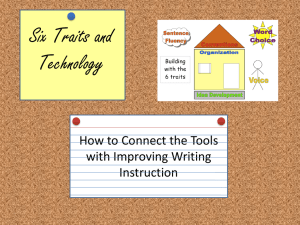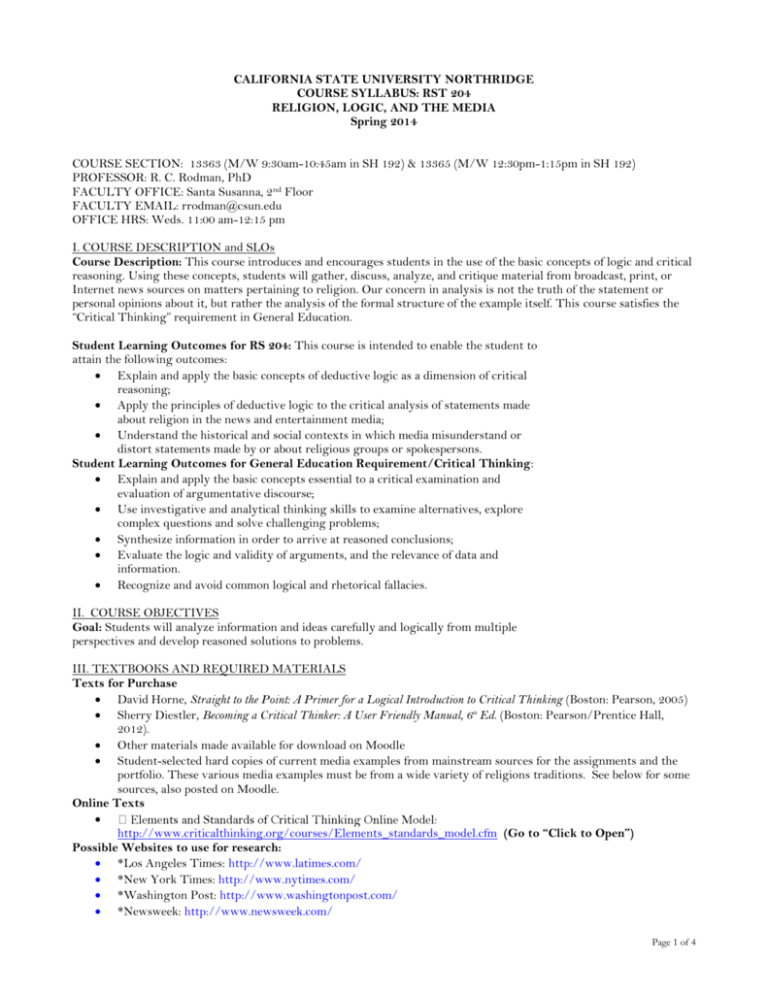
CALIFORNIA STATE UNIVERSITY NORTHRIDGE
COURSE SYLLABUS: RST 204
RELIGION, LOGIC, AND THE MEDIA
Spring 2014
COURSE SECTION: 13363 (M/W 9:30am-10:45am in SH 192) & 13365 (M/W 12:30pm-1:15pm in SH 192)
PROFESSOR: R. C. Rodman, PhD
FACULTY OFFICE: Santa Susanna, 2nd Floor
FACULTY EMAIL: rrodman@csun.edu
OFFICE HRS: Weds. 11:00 am-12:15 pm
I. COURSE DESCRIPTION and SLOs
Course Description: This course introduces and encourages students in the use of the basic concepts of logic and critical
reasoning. Using these concepts, students will gather, discuss, analyze, and critique material from broadcast, print, or
Internet news sources on matters pertaining to religion. Our concern in analysis is not the truth of the statement or
personal opinions about it, but rather the analysis of the formal structure of the example itself. This course satisfies the
“Critical Thinking” requirement in General Education.
Student Learning Outcomes for RS 204: This course is intended to enable the student to
attain the following outcomes:
Explain and apply the basic concepts of deductive logic as a dimension of critical
reasoning;
Apply the principles of deductive logic to the critical analysis of statements made
about religion in the news and entertainment media;
Understand the historical and social contexts in which media misunderstand or
distort statements made by or about religious groups or spokespersons.
Student Learning Outcomes for General Education Requirement/Critical Thinking:
Explain and apply the basic concepts essential to a critical examination and
evaluation of argumentative discourse;
Use investigative and analytical thinking skills to examine alternatives, explore
complex questions and solve challenging problems;
Synthesize information in order to arrive at reasoned conclusions;
Evaluate the logic and validity of arguments, and the relevance of data and
information.
Recognize and avoid common logical and rhetorical fallacies.
II. COURSE OBJECTIVES
Goal: Students will analyze information and ideas carefully and logically from multiple
perspectives and develop reasoned solutions to problems.
III. TEXTBOOKS AND REQUIRED MATERIALS
Texts for Purchase
David Horne, Straight to the Point: A Primer for a Logical Introduction to Critical Thinking (Boston: Pearson, 2005)
Sherry Diestler, Becoming a Critical Thinker: A User Friendly Manual, 6th Ed. (Boston: Pearson/Prentice Hall,
2012).
Other materials made available for download on Moodle
Student-selected hard copies of current media examples from mainstream sources for the assignments and the
portfolio. These various media examples must be from a wide variety of religions traditions. See below for some
sources, also posted on Moodle.
Online Texts
http://www.criticalthinking.org/courses/Elements_standards_model.cfm (Go to “Click to Open”)
Possible Websites to use for research:
*Los Angeles Times: http://www.latimes.com/
*New York Times: http://www.nytimes.com/
*Washington Post: http://www.washingtonpost.com/
*Newsweek: http://www.newsweek.com/
Page 1 of 4
*Time: http://www.time.com/time/
*These websites now allow only limited access without a subscription. For example, you may read 15 stories a month on
the LA Times’ site, 20 on the Washington Post’s, and 10 on the NY Times’.
One way to make up for this is to use LexisNexis Academic on the Oviatt Library’s Website. This database allows you
access to the most recent articles from major world publications, including newspapers, magazines, wire services,
broadcast transcripts, and blogs. It also allows you to filter articles according to subject.
LexisNexis Academic:
http://www.lexisnexis.com.libproxy.csun.edu/hottopics/lnacademic/?
Huffington Post: http://www.huffingtonpost.com/religion/
Reuters: http://blogs.reuters.com/faithworld/
Religion News Service: http://www.religionnews.com
Patheos: www.patheos.com
Religion, Politics, and Law: http://religionpoliticsandlaw.blogspot.com
The Atlantic: http://www.theatlantic.com
Unreasonable Faith (Atheism): http://www.patheos.com/blogs/unreasonablefaith/
USA Today: http://www.usatoday.com/
CNN: http://religion.blogs.cnn.com
Fox News: http://www.foxnews.com/us/religion/index.html
National Review Online: http://www.nationalreview.com
NPR: http://www.npr.org/
The Pew Forum on Religion and Public Life: http://pewforum.org/
The Barna Group: http://www.barna.org/
And many more…
IV. COURSE POLICIES AND REQUIREMENTS
Familiarity with Moodle: Technological Information: This class will employ Moodle for both student assignments and
presentations and to provide students with access to media examples that will be presented in the course. It is your
responsibility to learn how to use Moodle. For
information and instructions about Moodle, go to: http://www.csun.edu/it/studentmoodle-help/
Attendance and Participation: Attendance is mandatory. I make no distinction between excused and unexcused
absences. Three or more consecutive absences AND/OR seven absences over the semester will result in your being
dropped from the course. The more absences you have, the lower your grade.
Showing up isn’t enough. You must be fully prepared for each class. All assignments must be read prior to the
class they are assigned, and all readings must be brought to class.
You must fully participate in the class by asking/answering questions, fully participating in discussions, and
fully engaging in any other activity of the class.
Please make sure you attend to your personal needs before or after the class. You may not leave during class. No
cell phones, texting, or Internet use for anything other than class work.
Written Work: All papers must meet basic scholarly standards appropriate for university level work. Not only does this
include proper grammar, punctuation, and syntax, but also serious reflection on your topic. There are many sources to
help you with your writing assignments. The most important is the Writing Program at CSUN’s Learning Resource
Center, Room 408, Bayramian Hall, 818-677-2033 or go
to: http://www.csun.edu/lrc/writing.html.
Deadlines: Because due dates are stated at the outset, all papers/assignments must be turned in or posted on Moodle on
the date listed. No late work will be accepted. Failure to show up on the day of presentations will result in forfeiting
your ability to present and all the points that go with it.
Plagiarism/Cheating: Any evidence of plagiarism will result in a failing grade, certainly for the item plagiarized, but
also for the course. Plagiarism is one form of cheating, but not the only one. Other examples include “borrowing”
stealing, buying or otherwise procuring papers and exams, or having someone else take an exam or write an essay for
which you take credit. All instances of cheating will result no credit for the assignment and follow up with the Dean’s
office.
Special Accommodations: If you have a documented learning disability and/or a physical disability and need special
accommodations in order to complete course requirements, please make sure the instructor is informed.
Contact with the Professor: My office hours are posted above. I look forward to working with each of you in class and
on an individual basis. Therefore, I urge you to take advantage of my office hours. I am happy to discuss any aspect of this
course with you, and help you with the assignments. I especially urge you to see me if you are confused about the course
or an assignment. Really successful students ask questions! Please contact me by email, in class, or during office hours
with your questions, comments, or requests. No phone calls please.
Page 2 of 4
What I Expect From You
OUR CLASS CONTRACT
What You Can Expect From Me
You will treat everyone in class, including the professor,
with respect and courtesy due all human beings.
I will treat you with the respect and courtesy due all human
beings.
You will attend every class, give your full attention to the I will attend every class, give my full attention to the material
material, and conduct yourself in an appropriate manner. and conduct myself in an appropriate manner.
You will agree to do the work outlined in the syllabus on I will return your work in a timely fashion.
time.
You can ask for help.
I will assist you in any way I can, and make myself available
to you via office hours. You can expect a response to email
within 24 hours except in rare cases.
You will acknowledge that your perception of effort, by
itself, is not enough to justify a distinguished grade.
I will not discriminate against you on the basis of your
identity or your well-informed viewpoints.
You will prepare carefully for every class.
I will prepare carefully for every class.
You will not plagiarize, cheat, copy, or steal the work of
others.
I will pursue the maximum punishment for plagiarism,
cheating, and other violations of academic integrity.
You will not make excuses for your failure to do what
you ought; you will accept the consequences – good and
bad – of your actions.
I will keep careful records of your attendance, performance,
and progress.
V. ASSESSMENT
Grading: Plus-Minus System will be used
Class participation and attendance: 20%
Moodle Assignments: 20%
Three Quizzes: 15% (5% each)
Class Presentation: 20%
Final Paper: 25%
Letter Grade Allocation
95-100 A
90-94
A 87-89
B+
83-86
B
80-82
B 77-79
C+
73-76
C
70-72
C 60-69
D
VI. SCHEDULE
Thinking, critical thinking, and logic
1/22-26
1/27-2/2
Monday
Wednesday
Course Introduction
Horne, Intro
Read Horne, chap. 1
Group exercises in class
Read “Critical Thinking Concepts,” and review
“Elements and Standards” chart
Moodle Assignment
Come prepared to present/discuss
Page 3 of 4
Arguments: Types and Components
2/3-2/9
2/10-2/16
Diestler, chap. 1 (pp. 2-16)
Group exercises in class
Read Horne, chap. 2
Group exercises in class
Moodle Assignment
Come prepared to present/discuss
Moodle Assignment
Quiz
Assumptions
2/17-2/23
Diestler, chap. 2 (pp. 37-55)
Group exercises in class
Read Horne, chap. 3
Group exercises in class
Read Diestler, chap. 3 (pp. 74-88)
Moodle assignment
Come prepared to present/discuss
Moodle assignment
Group Project assignments
Read Diestler, chap. 3 (pp. 88-100)
Quiz
3/10-3/16
Read Horne, chap. 4
3/17-3/23
Read Diestler, chap. 6 (oo, 224-254)
Moodle assignment
Come prepared to present/discuss
Moodle assignment
Come prepared to present/discuss
2/24-3/2
3/3-3/9
Fallacies
Formal Logic and Inductive Reasoning
3/24-3/30
Read Horne, chap. 6
Read Diestler, chap. 4 (pp. 121-155)
Quiz
Sticks and Stones and the Power of Suggestion
3/31-4/6
Read Diestler, chap. 7 (274-303)
Moodle Assignment
Come prepared to present discuss
Read Diestler, chap. 8 ( pp. 320-374)
Moodle Assignment
Come prepared to present/discuss
Spring Break
4/7-4/13
Spring Break, no classes.
Spring Break, no classes
Group Presentations
4/14-4/20
4/21-5/11
5/12
Group Presentations work week
Group Presentations
Final Portfolio and Paper due
Group Presentations work week
Group Presentations
Page 4 of 4



